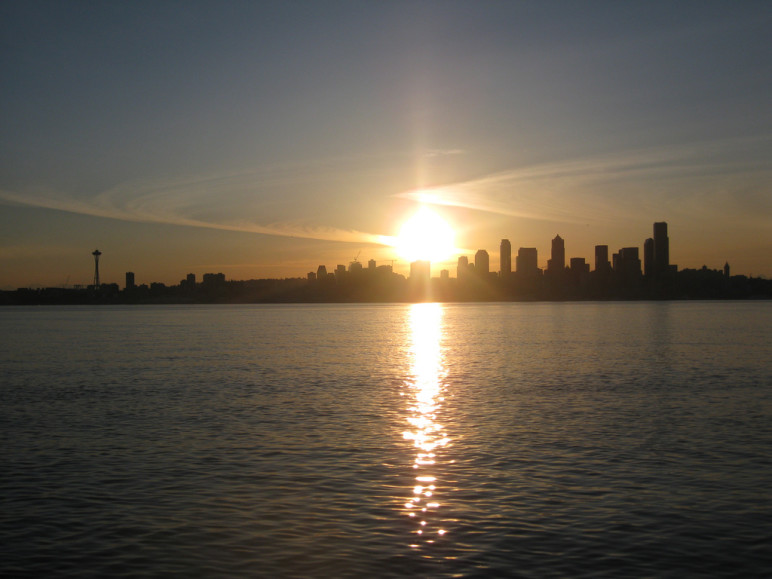Quite by accident, King County is starting 2020 with the potential to become a leader in phasing out the use of fracked gas in buildings. Eliminating fossil fuels in homes and businesses is an important step on the Northwest’s road to decarbonization, and it’s consistent with the most serious analytical studies of the issue. Already, a number of cities in California and elsewhere have initiated bans, or partial bans, on new gas hookups. But local governments may be able to use other, subtler methods of reducing gas use in buildings that are even more effective.
One such hidden lever is the “franchise agreements” that cities and counties have with the utilities—including gas companies—that make use of public right-of-way like streets and sidewalks. In theory, these contracts give local governments the ability to manage gas infrastructure down (and out) over time, a helpful tool in the fight against climate change. Up until now, Washington counties were not allowed to have fees alongside the agreements. But in a little-noticed ruling last month, the Washington Supreme Court found that King County has authority to charge franchise fees, too. And, if a utility and the county cannot agree on the charge, then the county can actually bar the utility from using the county right-of-way.
The case wound up before the Supreme Court after King County passed an ordinance in 2016 requiring utility providers to pay rent for using the County’s right-of-way. Although King County does collect reimbursements for the administrative expenses incurred in managing the franchise, much like other local governments do, the County has not historically collected franchise fees or utility taxes for use of its public right-of-way, something that municipal governments do all the time. At the time, the County Council was simply trying to raise revenue to address budget deficits, not solve the climate crisis. But the move opened the door to some interesting possibilities for reducing fossil fuel use.
Soon after the rule was passed, however, a group of water and sewer districts sued King County, halting the rule’s implementation. Puget Sound Energy (PSE), western Washington’s gas utility, also intervened in the lawsuit, filing an amicus brief in opposition to the new ordinance.
The lawsuit made its way through the courts in the ensuing years. The Superior Court initially ruled in favor of the water and sewer districts, but King County appealed the ruling in 2018, petitioning the Washington Supreme Court. The Court heard oral arguments last September and issued its final opinion on December 5, reversing the Superior Court decision and giving King County the legal basis to charge a franchise fee. Plus, the decision handed King County a bonus: cities and towns are constrained by state law to a six percent rate on utility taxes—a tax that is entirely separate from franchise agreements–but the ruling allows King County to charge any amount it chooses, unconstrained.
Together, franchise fees and utility taxes could be prime instruments for raising costs on gas utilities with an eye toward making fracked gas less economical relative to clean electricity. That would incentivize consumers to switch away from gas over time, thereby reducing fossil-fuel use and helping to achieve reductions in emissions consistent with the County’s Strategic Climate Action Plan.
Yes, raising costs on gas utilities could, in theory, increase costs on consumers. In fact, in its amicus brief to the Supreme Court, PSE makes just this argument: “…a dramatic rate hike is exactly what will happen if the Ordinance and Rules are legitimized.” PSE estimates that this ordinance will increase the cost of utility service by nearly $40 per year for each utility customer. That’s a potential problem, but it’s an easily fixable one.
For starters, it’s conceivable that state regulators could simply prohibit PSE or other gas utilities from passing along the additional costs, taking them out of corporate profits instead. At the local level, it would be straightforward for cities or counties to use the revenue for direct financial assistance to lower-income ratepayers who are already treated inequitably by the current system. The money might simply be given to lower-income households almost like a basic income payment or it might be used to pay for the cost of transitioning homes from gas to clean electricity. King County could also experiment with different fee schedules that would match the environmental impacts of the services traveling through the county right-of-way. For example, clean electricity and renewable natural gas could be charged a lower rate than fossil-fuel based electricity and fracked gas, similar to the franchise proposals that the City of Eugene is considering.
Regardless, the ruling’s impact will be felt in all 39 Washington counties. Like King County, they also have the ability to impose franchise fees on utilities operating in their public right-of-ways and they can raise utility taxes. The new ruling opens up an opportunity far greater than plugging county deficits; it provides counties a leadership opportunity for transforming the Northwest’s carbon economy.
Laura Feinstein volunteers with Sightline, researching energy policy. She spent 11 years in the utility industry, working in energy conservation and engineering.
Eric de Place is Sightline’s Director of Thin Green Line. He is a leading expert on coal, oil, and gas export plans in the Pacific Northwest, particularly on fossil fuel transport issues, including carbon emissions, local pollution, transportation system impacts, rail policy, and economics.











Eli Spevak
Do you know if in Oregon, the legal context for charging utilities for the use of public ROW is similar or different from Washington?
Eric de Place
Good question, Eli. Oregon’s laws are generally more permissive than Washington’s, which potentially puts local governments there in a position similar to King County’s. You’ll find a little more about that in two other articles that Laura and I wrote in this series here and herehere.